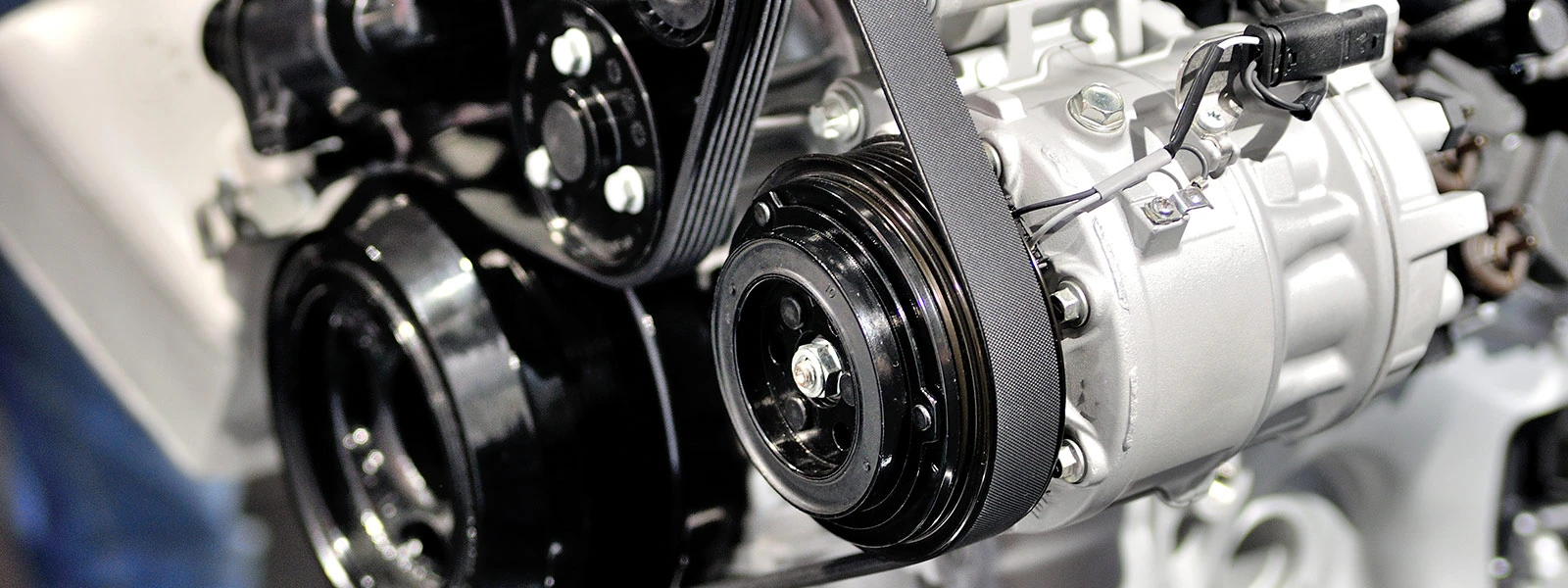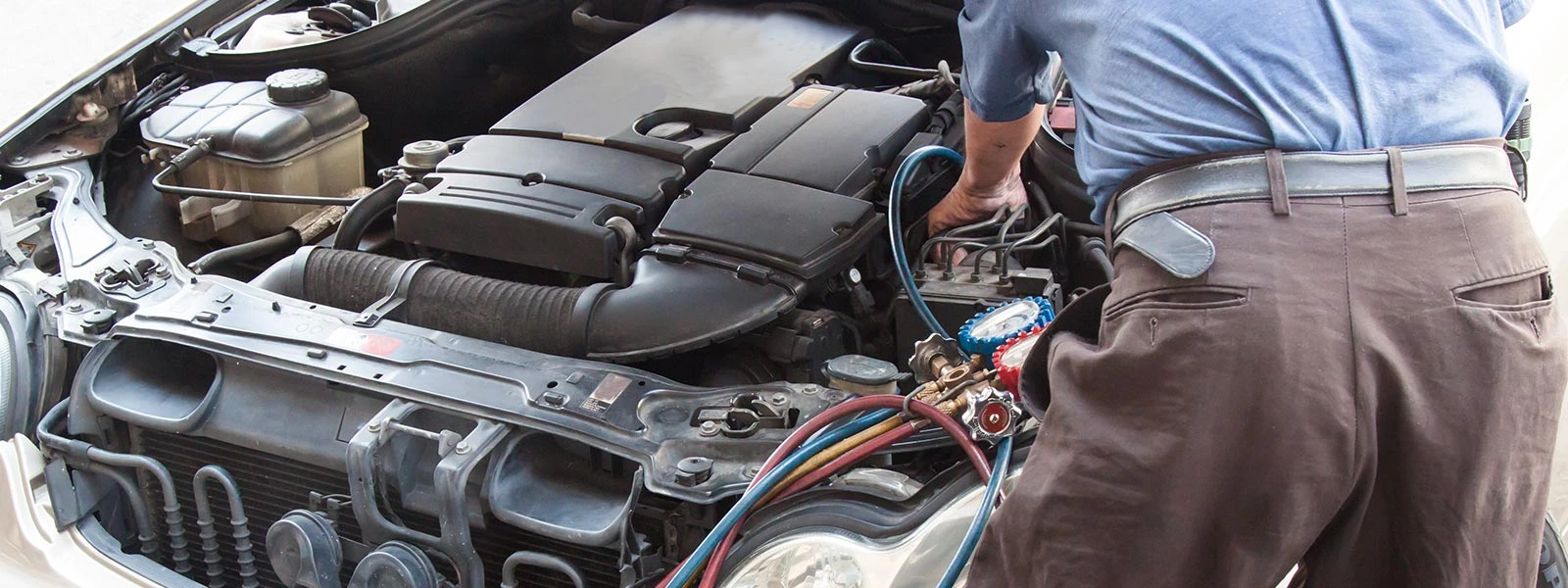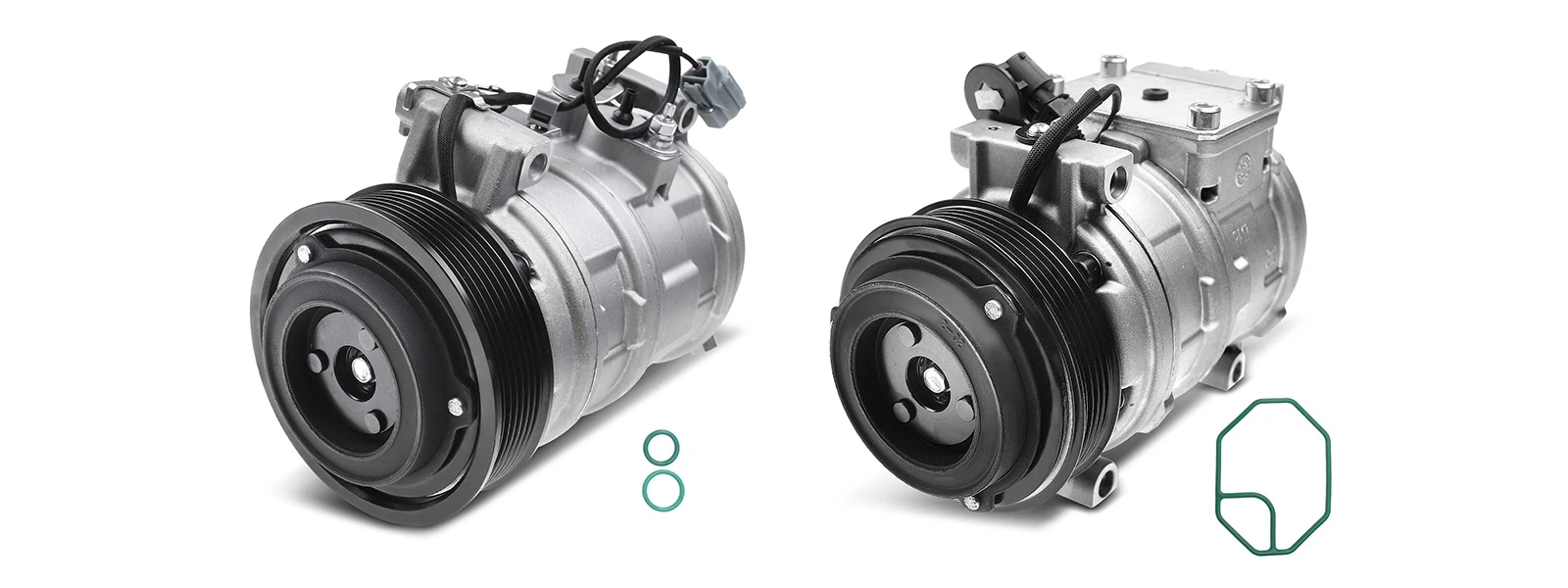How to Fix a Noisy Car AC Compressor: Tips and Tricks

Dealing with a noisy car AC compressor can be bothersome, but there are effective solutions to address it. Explore helpful tips and tricks that can assist you in resolving the problem, ensuring a quieter and more comfortable driving experience.
Suggested A-Premium Parts
When you're driving on a hot summer day, there's nothing more important than having a functioning air conditioning (AC) system in your car. It keeps you cool, comfortable and focused on the road. However, one common issue that can arise with AC systems is a noisy compressor. The AC compressor is a critical component of your car's cooling system, responsible for compressing and circulating refrigerant gas. A noisy compressor can be a sign of a bigger problem, and it can be incredibly frustrating to deal with. In this blog post, we'll explore some tips and tricks to help you fix a noisy car AC compressor and get back to enjoying a comfortable and quiet ride.

Causes of a noisy AC compressor
Insufficient lubrication is a significant contributor to a noisy AC compressor. Adequate lubrication is essential to reduce friction and wear between the compressor's moving parts. As time passes, the compressor's oil level may decrease, leading to increased friction between the components, which produces loud noises. Furthermore, contaminated oil or using the wrong type of oil can also cause a noisy compressor.
Loose components are also a common culprit for a noisy AC compressor. The compressor is connected to various other parts of the AC system, and if any of these parts become loose, they can produce rattling or vibrating sounds. Tightening or replacing these components can typically resolve the issue. We also have to know that bearings are used to support the compressor's moving parts, allowing them to rotate smoothly. Over time, these bearings can wear out, resulting in grinding or whining sounds. If left unaddressed, it can cause further damage to the compressor and other AC system components.
We should know electrical issues can also contribute to a noisy AC compressor. The compressor relies on electrical power to function properly, and if there are any issues with the electrical connections or wiring, it can lead to abnormal sounds. Typically, this is accompanied by other symptoms, such as weak airflow or warm air blowing from the vents.
Tips for fixing a noisy AC compressor
If your car's AC compressor is making loud and unpleasant noises, it's important to take action to fix it as soon as possible. Fortunately, there are several tips you can follow to address this issue and restore your driving comfort.
Tip 1: The first tip is to check the AC compressor belt for any signs of wear or damage. Over time, the belt can become cracked or frayed, leading to increased friction and noise. If you notice any issues with the belt, it's crucial to replace it promptly to prevent further damage to the AC system.
Tip 2: The second tip is to inspect the AC compressor clutch for any issues. The clutch is responsible for engaging and disengaging the compressor, and if it becomes worn or damaged, it can create unusual noises. If you notice any issues with the clutch, it may need to be replaced to resolve the issue.
Tip 3: Replacing the AC compressor oil is another important tip for fixing a noisy compressor. Proper lubrication is essential for reducing friction and wear between the compressor's moving parts. If the oil level is low or the oil is contaminated, it can contribute to increased noise. By replacing the oil with the appropriate type and quantity, you can restore proper lubrication and reduce noise levels.
Tip 4: Tightening any loose components is another simple tip that can resolve noise issues. The compressor is connected to various other parts in the A/C system, and if any of these components become loose, they can create rattling or vibrating sounds. Tightening or replacing these components can resolve the issue and restore your driving comfort.
Tip 5: Replacing damaged bearings is another important tip for fixing a noisy AC compressor. Bearings are used to support the compressor's moving parts and allow them to rotate smoothly. Over time, these bearings can wear out, causing grinding or whining sounds. If left unaddressed, this can cause further damage to the compressor and other parts of the AC system.
Tip 6: Finally, checking for electrical issues is crucial for fixing a noisy AC compressor. The compressor relies on electrical power to function correctly, and if there are any issues with the electrical connections or wiring, it can lead to abnormal sounds. This is typically accompanied by other symptoms such as weak airflow or warm air blowing from the vents. If you notice any issues with the electrical system, it's essential to seek professional help to ensure your safety and avoid further damage to your vehicle.
By following these tips for fixing a noisy AC compressor, you can restore your driving comfort and prevent further damage to your vehicle's AC system. Remember to seek professional help if needed, and prioritize proper maintenance to prevent future issues from occurring.

Prevention methods
Maintaining your car's AC system is vital to ensuring it runs smoothly and without any noise issues. Regular maintenance is the key to preventing problems with the AC compressor, which is one of the most important components of the system.
Regular AC maintenance is essential because it helps to keep the AC system running efficiently. One of the most important components of the system is the AC compressor. If the AC compressor isn't functioning correctly, it can cause a variety of issues, including noise problems. To prevent this from happening, it's essential to have your AC system checked and maintained regularly.
One of the most important things you can do to prevent AC compressor noise is to replace the AC compressor oil regularly. Over time, the oil can break down, causing the compressor to work harder and make more noise. By replacing the oil every few years, you can prevent this from happening and ensure that the AC compressor runs smoothly.
Inspecting the AC compressor belt for any indications of wear or damage is another essential preventive measure. If the belt is worn or damaged, it can cause the compressor to work harder, leading to more noise. By replacing the belt as needed, you can prevent this from happening and keep the AC system running smoothly.
Examining the AC compressor clutch is also vital to avoid noise problems. The clutch can wear out over time, causing the compressor to work harder and make more noise. By inspecting the clutch regularly and replacing it as needed, you can prevent this from happening and keep the AC system running smoothly.
So it's important to check for loose components and damaged bearings regularly. Loose components can cause vibration and noise, while damaged bearings can cause the compressor to work harder and make more noise. By tightening any loose components and replacing damaged bearings as needed, you can prevent these issues and keep the AC system running smoothly. Proper maintenance of your car's AC system is essential for preventing noise issues with the AC compressor. By following these tips and regularly maintaining your AC system, you can prevent noise issues and ensure that your car's AC system runs smoothly and efficiently. Don't ignore the importance of AC maintenance – take care of your AC system, and it will take care of you!

FAQ about how to fix a noisy car AC compressor
Q: What are some signs of a noisy AC compressor?
Some signs of a noisy AC compressor include unusual sounds such as grinding, rattling, or squealing coming from the AC system. You may also notice that the AC system is not cooling properly or is producing a foul odor.
Q: Can a noisy AC compressor damage the car?
Yes, a noisy AC compressor can damage the car. If left unchecked, a noisy AC compressor can lead to more significant issues with the AC system, which can result in expensive repairs or even total replacement.
Q: Can I fix a noisy AC compressor myself?
It depends on the cause of the noise. If the issue is minor, such as a loose component, you may be able to fix it yourself. However, if the problem is more significant, it's best to seek professional help.
Q: How often should I have my AC system checked?
It's recommended that you have your AC system checked at least once a year. Regular maintenance can prevent future issues with the AC system, including noise problems.
Q: What should I do if I notice a noisy AC compressor?
If you notice a noisy AC compressor, you should address the issue promptly. Ignoring the problem can lead to more significant issues down the road. Start by checking the AC compressor belt and clutch for any damage or wear. If you're unsure or the problem persists, seek professional help.
In conclusion
A noisy car AC compressor can be a frustrating and potentially dangerous issue. It is important to identify the cause and implement the necessary solutions promptly to avoid further damage to the AC system and potential safety hazards. A-Premium is a top and excellent automobile car parts brand that provides high-quality replacement parts, including AC compressors, that can help fix the issue. By following the tips and tricks discussed in this article and using reliable replacement parts from A-Premium, car owners can ensure their AC system is functioning properly and enjoy a comfortable and safe driving experience. Remember, if you are unsure about any steps or unable to fix the issue yourself, seek professional help from a qualified mechanic or AC technician.






